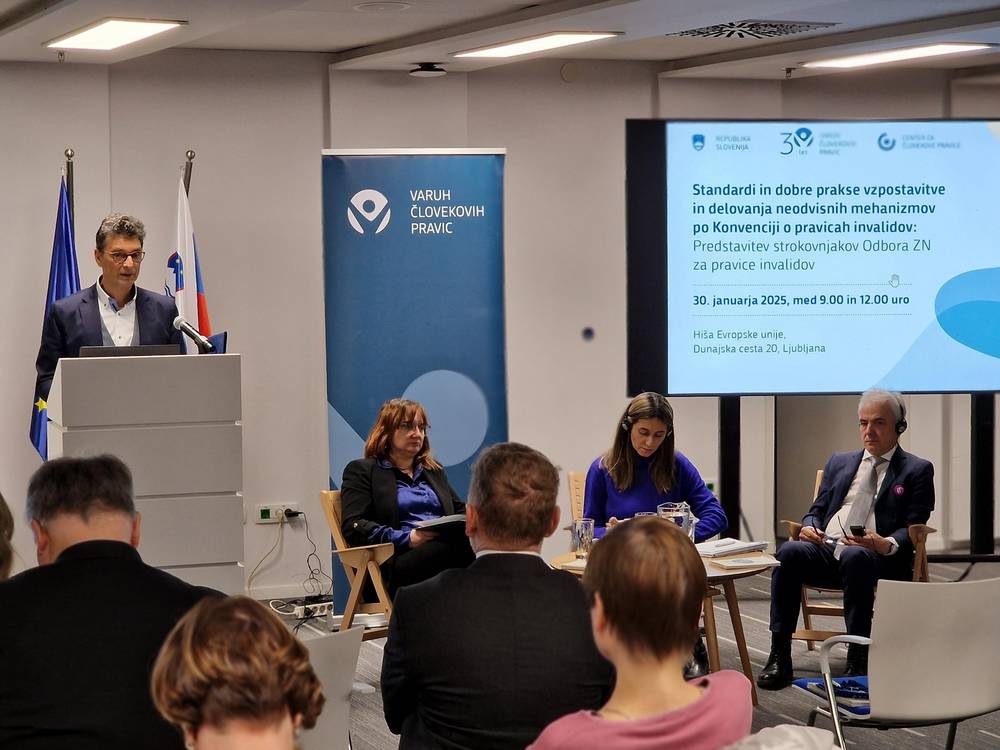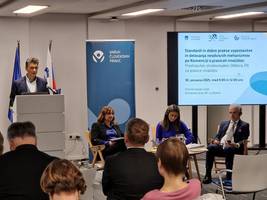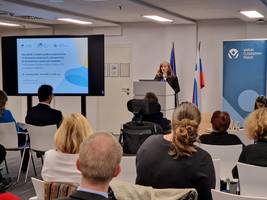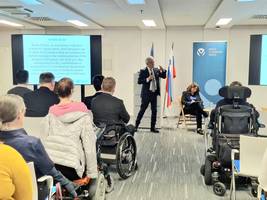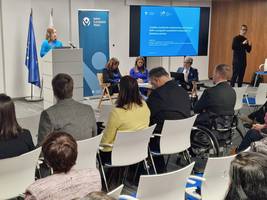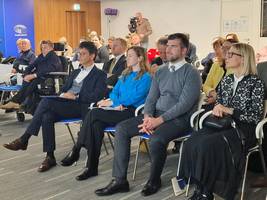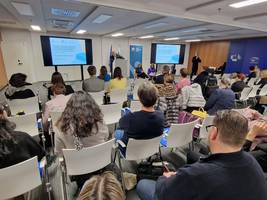"Establishing an independent monitoring mechanism, consistent with the requirements of the Paragraph 2 of Article 33 of the Convention on the Rights of Persons with Disabilities, is not only a legal obligation, but also an opportunity to strengthen the human rights of persons with disabilities in Slovenia," said Human Rights Ombudsman Peter Svetina today, 30 January 2025, at a professional event at the House of the European Union in Ljubljana, after he warned that Slovenia still does not have a monitoring mechanism in place and reiterated the readiness of the Ombudsman institution to take on this task.
At an expert event organised by the Ombudsman's Center for Human Rights, representatives of the United Nations Committee on the Rights of Persons with Disabilities presented key international standards and good practices for the establishment of independent monitoring mechanisms for the implementation of the Convention on the Rights of Persons with Disabilities (CRPD).
Since 2019, the Ombudsman has expressed his readiness to take on this responsible task as the only national institution for human rights in Slovenia with the highest A status according to the Paris Principles – a standard that should also be met by independent monitoring mechanisms according to the Convention.
Two recent international resolutions also encourage countries to establish such mechanisms. The UN Human Rights Council Resolution of October 2024 encourages countries to include national human rights institutions as part of independent mechanisms to monitor the implementation of the CRPD, consistent with the Paris Principles. The resolution of the UN General Assembly from January 2025 calls on countries to strictly comply with these standards when granting mandates to national monitoring mechanisms.
"At the Ombudsman, as part of our general mandate as a national institution for human rights, we already carry out many tasks in the field of promoting, protecting, and monitoring the rights of people with disabilities. We also regularly report on these activities in our quarterly work reviews, which are available to the public. We also wanted to contribute to the improvement of the situation with today's event," said the Ombudsman.
The event was intended for representatives of decision-makers, disability organisations, human rights experts, and other stakeholders. "The aim of the event is to deepen the understanding of CRPD standards and the Paris Principles and to strengthen cooperation between key actors in establishing an independent monitoring mechanism in Slovenia, and to contribute to the establishment of an effective control mechanism with standards as soon as possible, which will be in line with the requirements of CRPD," said Dr Simona Drenik Bavdek, assistant to the head of the Center for Human Rights at the Ombudsman, who moderated the event.
The Ministry of Justice is preparing amendments to the Human Rights Ombudsman Act, according to which these tasks could be assigned to the institution of the Ombudsman, so the purpose of the event was also to shed light on the questions of what an independent monitoring mechanism should be in order to meet international standards, effectively contribute to protection, promotion, and monitoring the rights of persons with disabilities, and ensure the active participation of persons with disabilities and their representative organisations.
Markus Schefer, a member of the UN Committee on the Rights of Persons with Disabilities, presented in detail the national obligations from Article 33 of the CRPD. He emphasised the importance of the independence of independent supervisory mechanisms, as defined by the Paris Principles, highlighting the need for institutional autonomy, sufficient financial resources, and professionally qualified personnel. He particularly drew attention to the necessity of broad involvement of persons with all types of disabilities in monitoring the implementation of the Convention.
Catherinne Pedreros, representative of the Secretariat of the UN Committee on the Rights of Persons with Disabilities, shed light on the role of monitoring mechanisms in monitoring the implementation of the Convention. She also spoke about their cooperation with the UN Committee on the Rights of Persons with Disabilities.
Jerneja Turin, adviser – analyst at the Center for Human Rights and president of the working group on the rights of the persons with disabilities at the European Network of National Human Rights Institutions (ENNHRI), presented a prepared analysis of how independent monitoring mechanisms are organised in other European national human rights institutions. "It follows from the analysis that it is necessary to provide financial and personnel reinforcements when the mandate is determined. It is also necessary to establish good and effective cooperation of this mechanism with disability organisations in accordance with the concept of disability according to the Convention on the Rights of Persons with Disabilities, preferably at the legal level," stressed Turin.
The participants of the event agreed that it is necessary to establish an independent monitoring mechanism as soon as possible, which will fully meet international standards, effectively contribute to the protection, promotion and monitoring of the rights of persons with disabilities, and adequately ensure the cooperation of persons with disabilities and their representative organisations.
